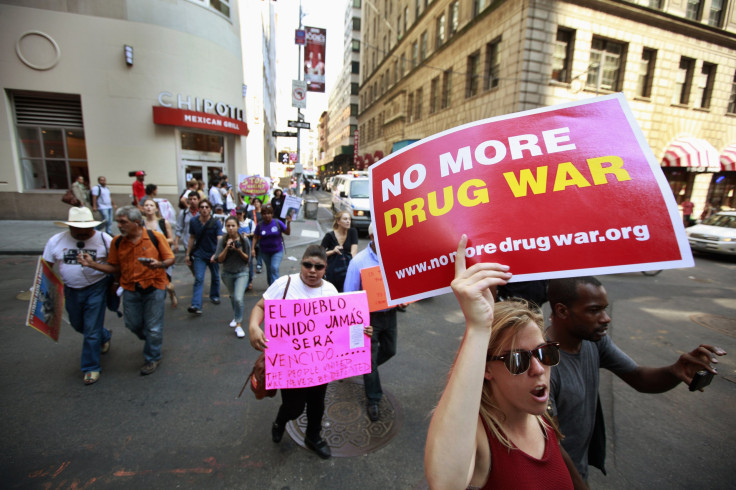Marijuana Law New York: How No-Arrest Policy Could Make Things Worse For Minor Offenders

Small-time drug offenders in New York City could soon find themselves on the receiving end of a ticket instead of inside a jail cell if a policy change on low-level marijuana possession is adopted this week. The move would overwhelmingly affect black and Latino residents, who represented 86 percent of marijuana possession arrests in the city this year, according to the Marijuana Arrest Research Project.
Advocates of criminal justice reform applaud the proposal as a step toward softening the long-term consequences of having a minor drug offense on one’s record, but there is a chance that the policy, which New York City Mayor Bill de Blasio is expected to announce Monday, could boomerang. The strategy would require anyone caught with a small amount of marijuana – likely to be defined as 25 grams or less – to be issued a court summons instead of being handcuffed, arrested and fingerprinted. But doing so means those summonses would not be subject to prosecutorial review, which would identify if a summons was justified in the first place, legal experts say.
Under the current system, when an arrest is made, the charge becomes a court case reviewed by a prosecutor. A prosecutor could throw out the charge or refuse to prosecute should he or she see any indication that the arresting officer violated due process, such as searching a person’s backpack without probable cause. Prosecutorial reviews “perform a screening function to weed out legally insufficient cases,” Jeffrey Fagan, professor of law at Columbia Law School in New York, told International Business Times. Under the new policy, “that function has now been eclipsed,” he said.
That sentiment was echoed by Brooklyn District Attorney Kenneth P. Thompson, who announced earlier this year that he would stop prosecuting small-scale marijuana violations. The Brooklyn DA’s office has dismissed 849 misdemeanor marijuana cases that involved arrest out of 2,526 such cases since July, according to the New York Times. Allowing police officers to write tickets without accountability creates “a serious concern that many summonses will be issued without the safeguards currently in place,” Thompson told the Times. “These cases will move forward even when due process violations might have occurred.”
Another possible repercussion of the city’s proposed policy change could be that arrest warrants are later issued for people who miss their court dates, adding possibly thousands of cases to the docket. Some 28,000 people were arrested on minor marijuana charges in 2013; issuing arrest warrants for all the people who fall sick or cannot miss work on the day of their summonses would put more stress on an already overburdened system. “It’s not solving the problem that they’re trying to solve,” Fagan said.
As many states, counties and cities across the country have done at various times over the past several decades, New York decriminalized the possession of small amounts of marijuana in 1977. The law made possession of the drug a ticketable offense and applied to marijuana that was out of public view and was not being smoked. Nevertheless, police have continued to arrest people and charge them with misdemeanors after finding small amounts of marijuana in their pockets or belongings. "At this point, [not arresting people for weed] wouldn't be progressive; it'd be catching up with the mainstream," Gabriel Sayegh, the New York state director of the Drug Policy Alliance, told Vice.
© Copyright IBTimes 2024. All rights reserved.





















